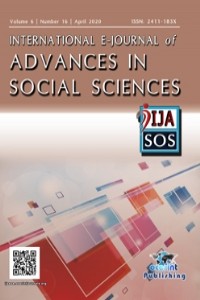Abstract
The case system of the Russian language is very difficult for foreign students because all cases are polysemantic, the amount of values is not the same; in addition to the main system endings, there are a large number of exceptions; there is an internal interference associated with homonymous endings of different cases and with homographs.
The choice of a particular way of presenting grammatical material, or approach, is due to some reasons, the main of which are:
a) the intensity of the course (how much time can be dedicated to studying the case system);
b) intellectual level of the group;
C) national traditions of education (for example, students from China are used to memorizing and returning, repeating many times).
For different approaches the different order of studying the cases are shown. In the concentric approach, after the nominative, which is always studied first since it is the initial (dictionary) form of the word, the genitive case in the meaning of absence should naturally be studied. This approach is logical when getting acquainted with the second case before studying the verb system. The construction “У меня есть ‘I have’ + noun in the nominative case" requires a logical continuation - the construction "У меня нет ‘I don’t have’ + noun in the genitive case" (genitive in the meaning of absence – нет кого? нет чего?). Further, the following order is optimal: prepositional (in the meaning of the place – где?) → accusative (in the sense of a direct object – что? кого?) → dative (in the meaning of the addressee – кому?) → instrumental (in the sense of complicity – с кем?).
With repeated, complete and detailed studying cases, as well as with a linear approach, the order is another: nominative → prepositional → genitive → accusative → dative → instrumental. The article explains the rationale for these approaches.
From all the richness and diversity of the meanings of Russian cases, the most important ones are chosen at the initial stage, which ensures the "survival" in the new language environment, social adaptation of foreign students. A detailed description of these critical values is also given in the article.
Keywords
The case system of the Russian language the existing points of view on teaching teaching experience
References
- Zlobina, S.A. (2011). The realization of the principles of continuity and perspective in teaching case system in russian to foreign students. Bulletin of RUDN, vol. 3.
Abstract
References
- Zlobina, S.A. (2011). The realization of the principles of continuity and perspective in teaching case system in russian to foreign students. Bulletin of RUDN, vol. 3.
Details
| Primary Language | English |
|---|---|
| Journal Section | Research Article |
| Authors | |
| Publication Date | September 10, 2020 |
| Submission Date | March 18, 2020 |
| Published in Issue | Year 2020 Volume: 6 Issue: 16 |
Contact: ijasosjournal@hotmail.com
The IJASOS Journal's site and its metadata are licensed under CC BY
Published and Sponsored by OCERINT International © 2015- 2025

